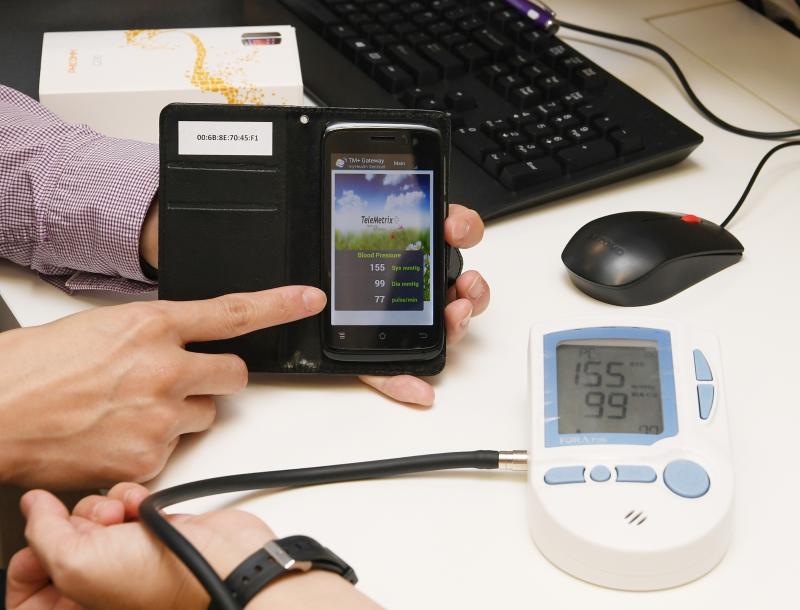High blood pressure patients benefit from pilot self-monitoring scheme
Sign up now: Get ST's newsletters delivered to your inbox

A group of 120 patients with hypertension with busy lifestyles or limited mobility were given free Bluetooth-enabled blood pressure monitoring devices, which transmit their weekly readings to a polyclinic care team.
ST PHOTO: KHALID BABA
SINGAPORE - A pilot scheme allowing hypertension patients to monitor their condition at home has shown promising results in its first six months.
A group of 120 patients with hypertension - or high blood pressure - and who have busy lifestyles or limited mobility were given free Bluetooth-enabled blood pressure monitoring devices, which transmit their weekly readings to a polyclinic care team.
As of last month, 54 patients had completed their first six months of treatment and shown improvement in their mean blood pressure.
The rest are still undergoing the treatment.
The scheme has saved them making at least one polyclinic visit a year, with the devices prompting those who miss readings and flagging irregular results to nurses.
Usually, patients take their blood pressure readings at home and write them down to discuss during their next polyclinic visit - which can delay necessary medical attention.
The pilot scheme was set up by the Ministry of Health's Office for Healthcare Transformation (MOHT) and the National Healthcare Group Polyclinics (NHGP), which released the results on Friday (July 12).
Both are working on a series of primary tech-enhanced care (PTEC) initiatives that provide care support and technology allowing patients with chronic diseases to manage their conditions.
The hypertension pilot scheme started at Ang Mo Kio Polyclinic last September.
Just over a fifth of Singapore's population has high blood pressure, according to the National Population Health Survey conducted between 2016 and 2017.
Of those taking part in the pilot, those with poorly controlled hypertension saw the highest benefit.
"Seeing a doctor two or three times a year is not sufficient - patients who look after themselves need advice and support, and need to be in close contact with the team of doctors and nurses," said Professor Tan Chorh Chuan, executive director of the MOHT.
The pilot is also trialling a bilingual SMS chatbot which can send timely advice to patients on their mobile phones.
Store cashier Catherine Tan, 47, says she has been monitoring her blood pressure more regularly since taking part in the trial.
"My work has irregular hours, so being able to take my blood pressure readings at home really makes things convenient and saves me a lot of time as I don't have to go to the polyclinic so often," she said.
"The chatbot's reminders also help me become more aware of my condition."
The pilot scheme is to be extended to more polyclinics within 12 to 18 months and a similar one will be extended to diabetes patients within six months.
"The high and rising prevalence of chronic diseases means we have to shift care out of hospitals to primary care such as polyclinics, and beyond that, into patients' homes," said Prof Tan. "Good control of chronic diseases need the active participation of the patients, to adhere to care protocols and adapt their lifestyle choices - the PTEC initiatives present a package of care and technology support which make it easier for patients to do so."


